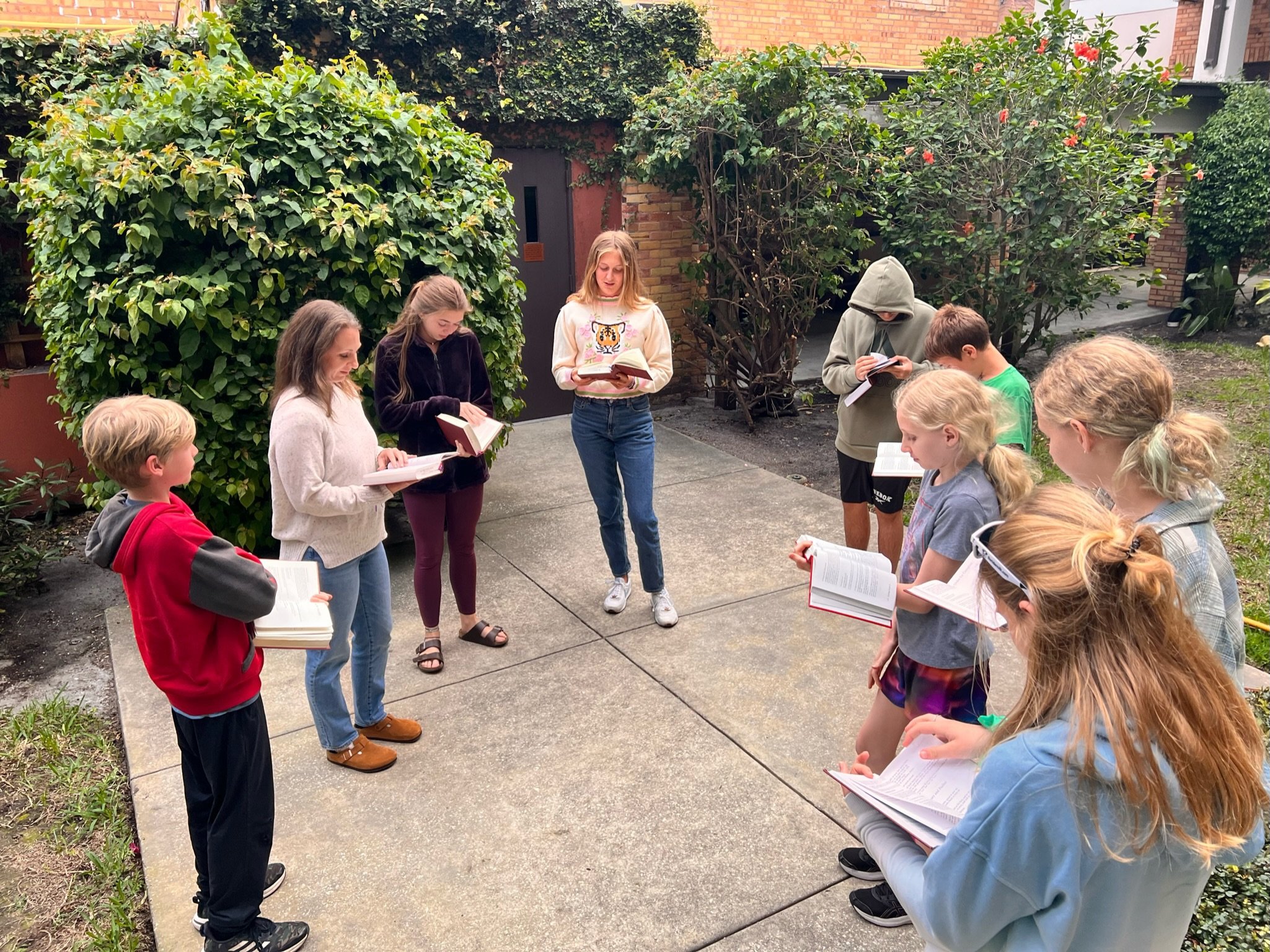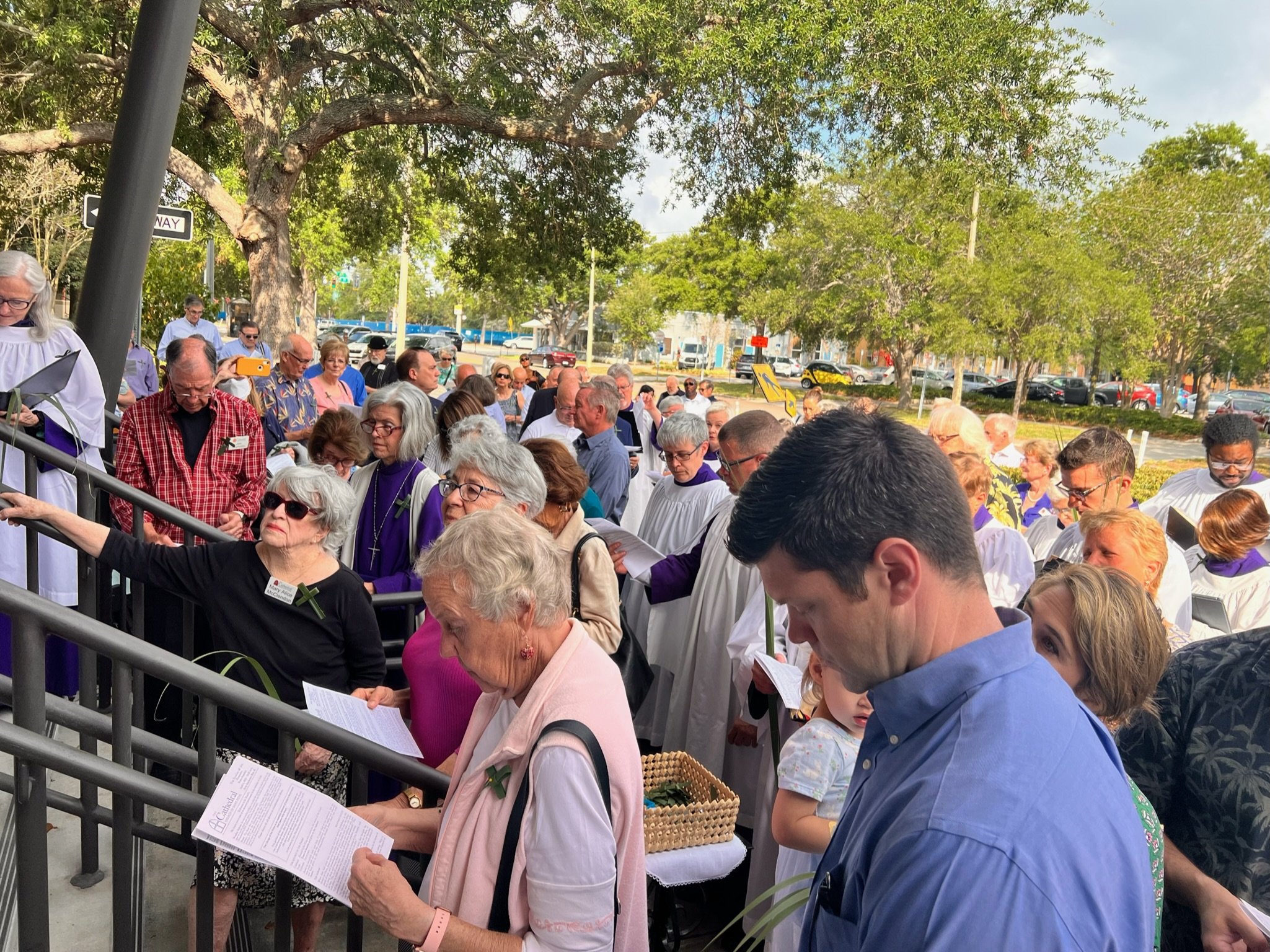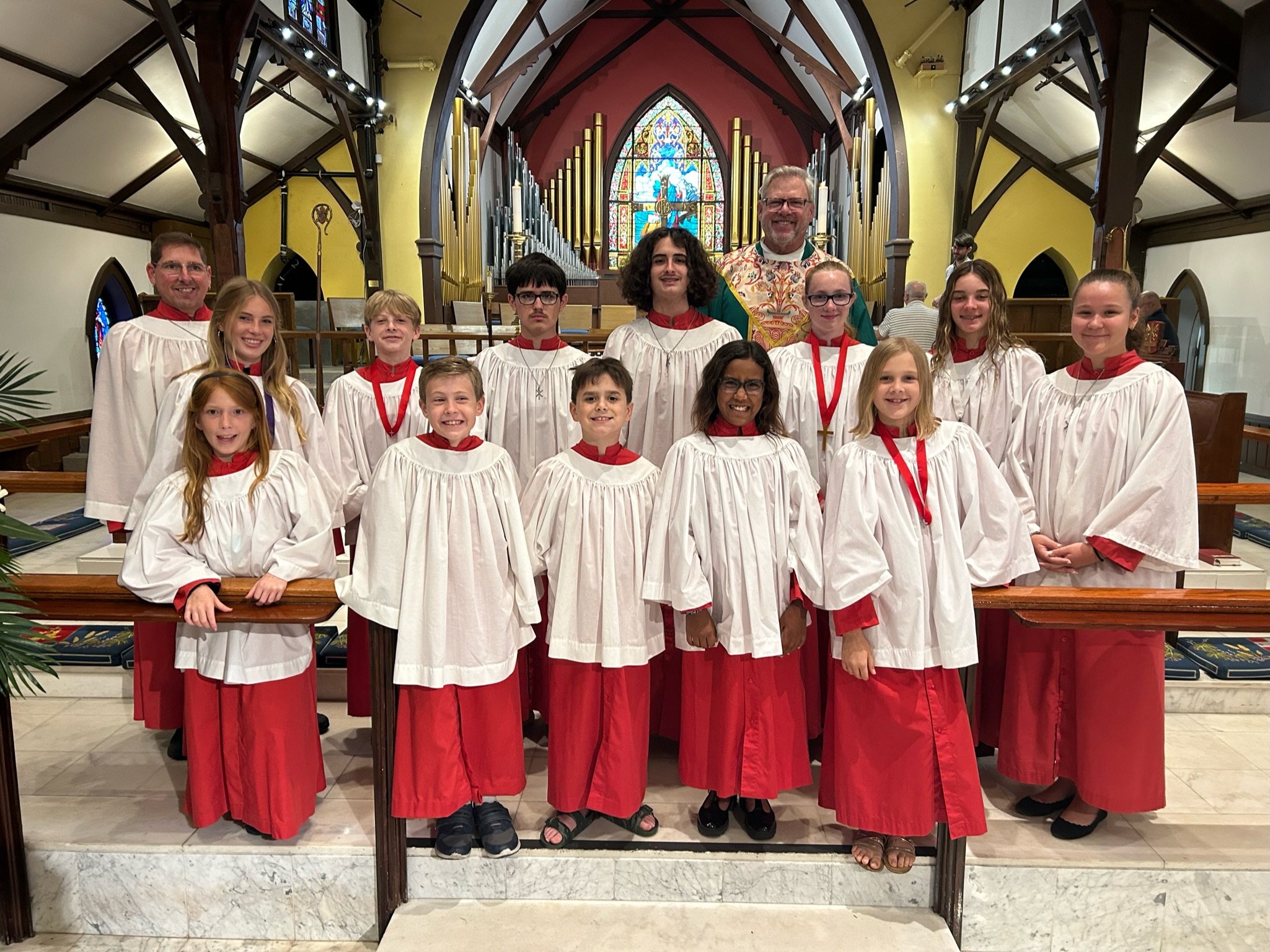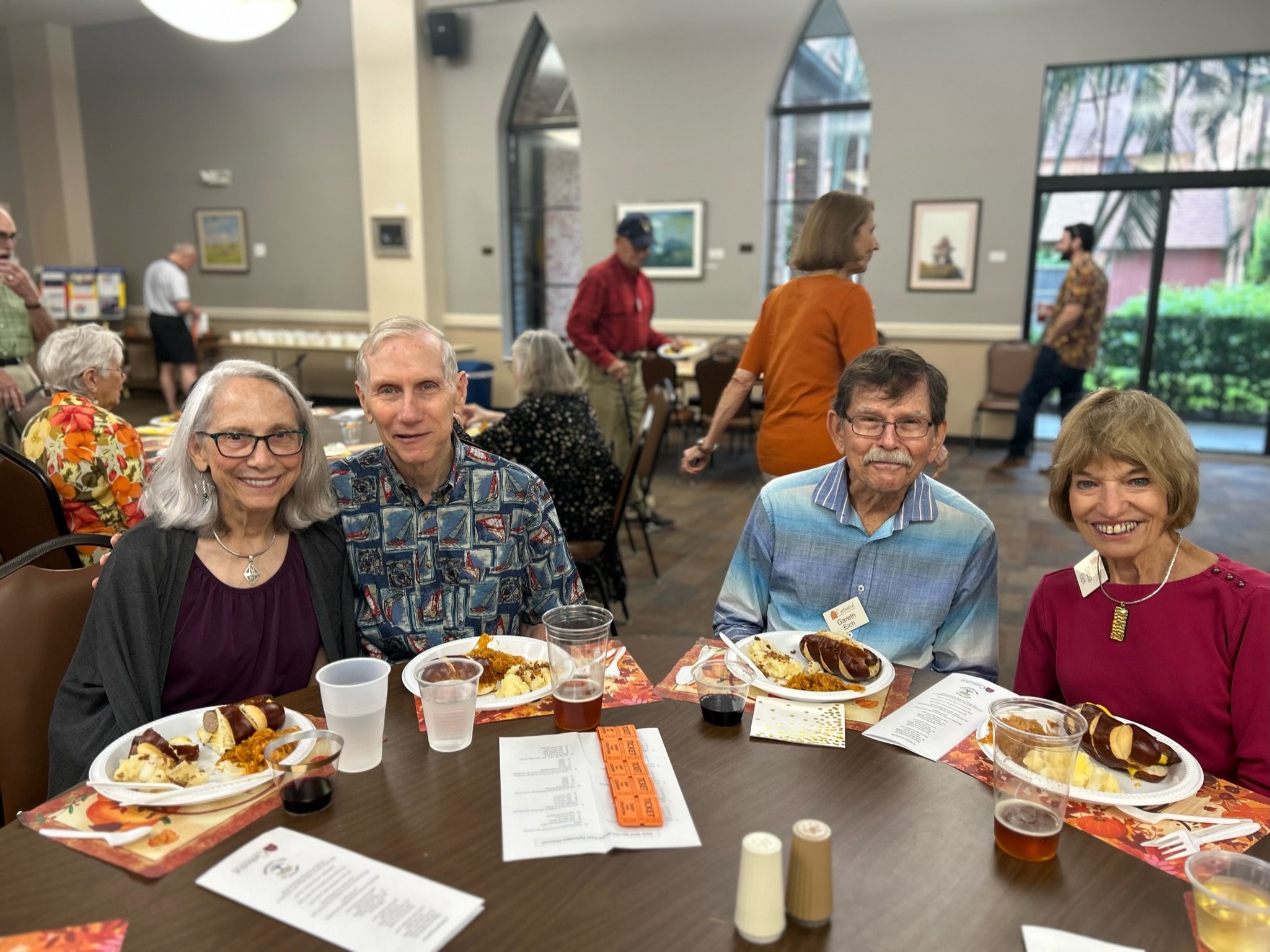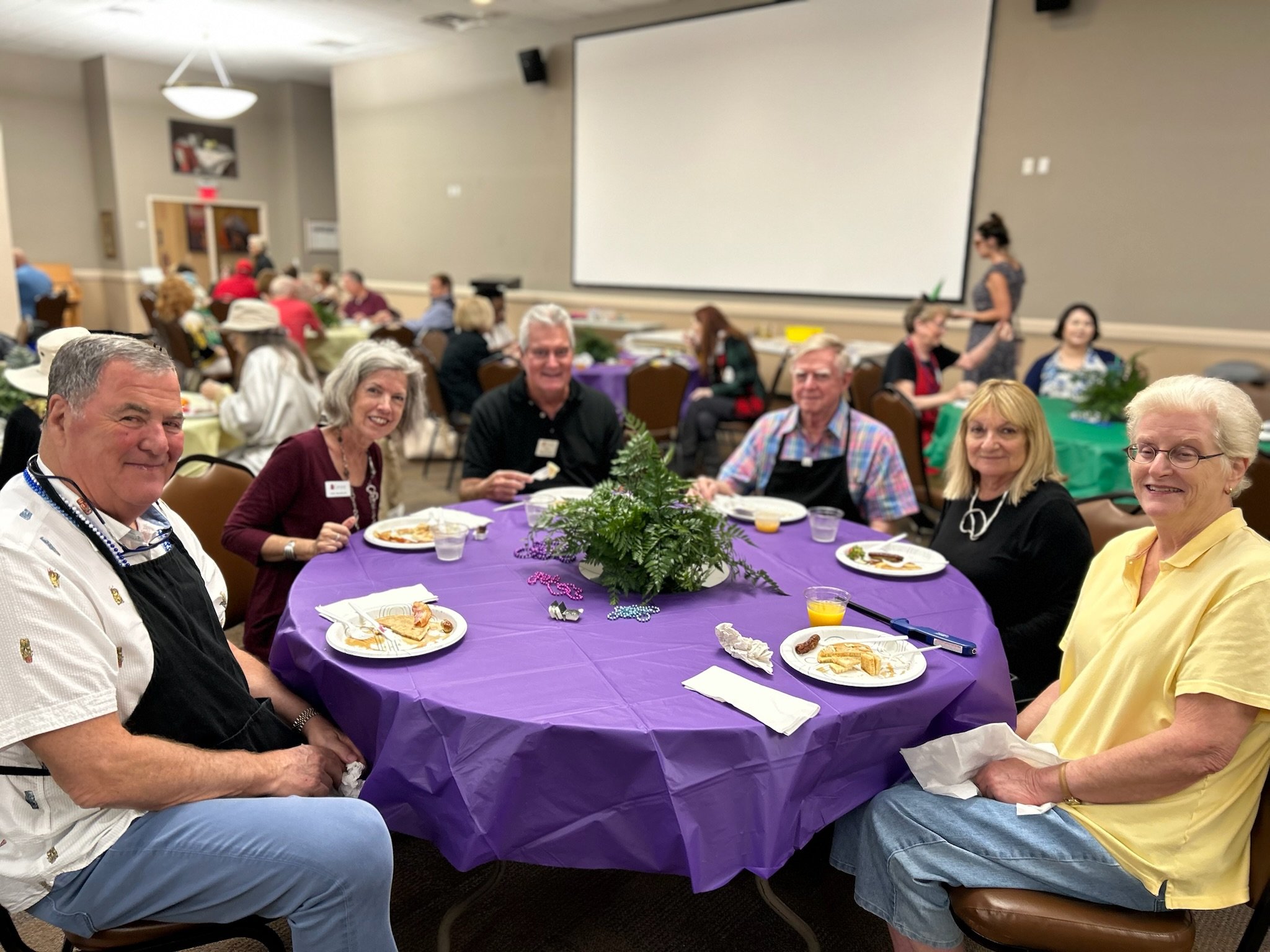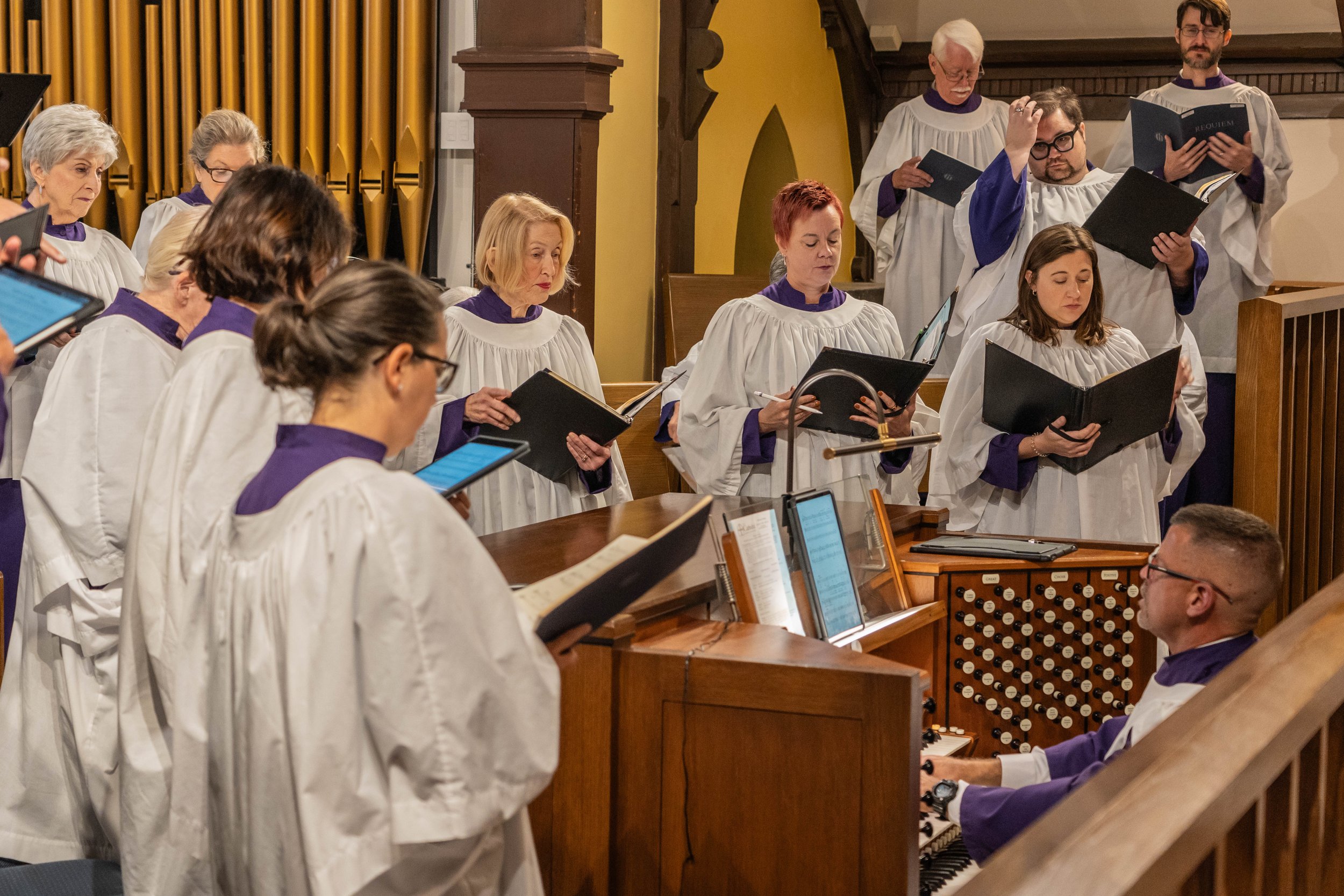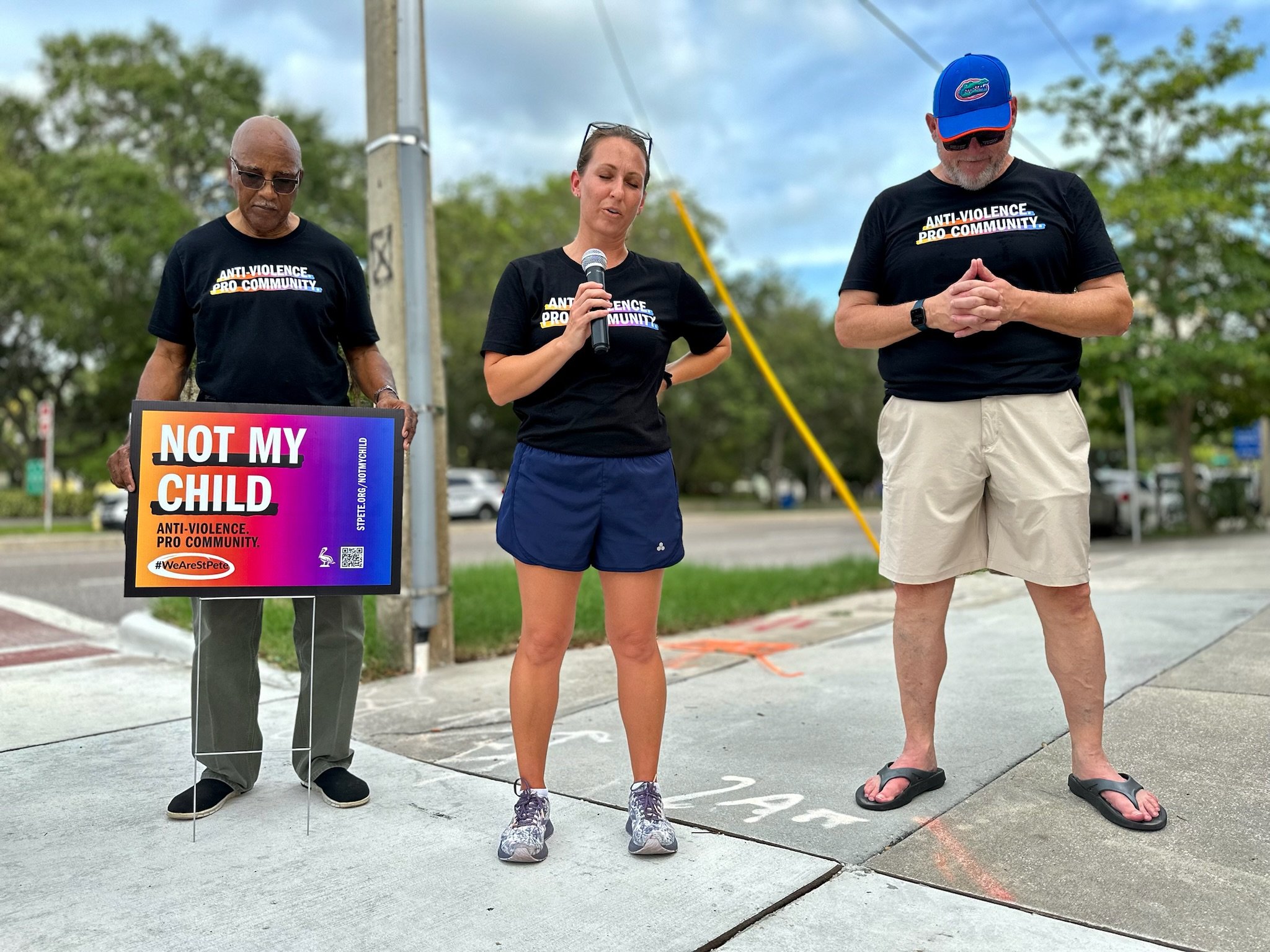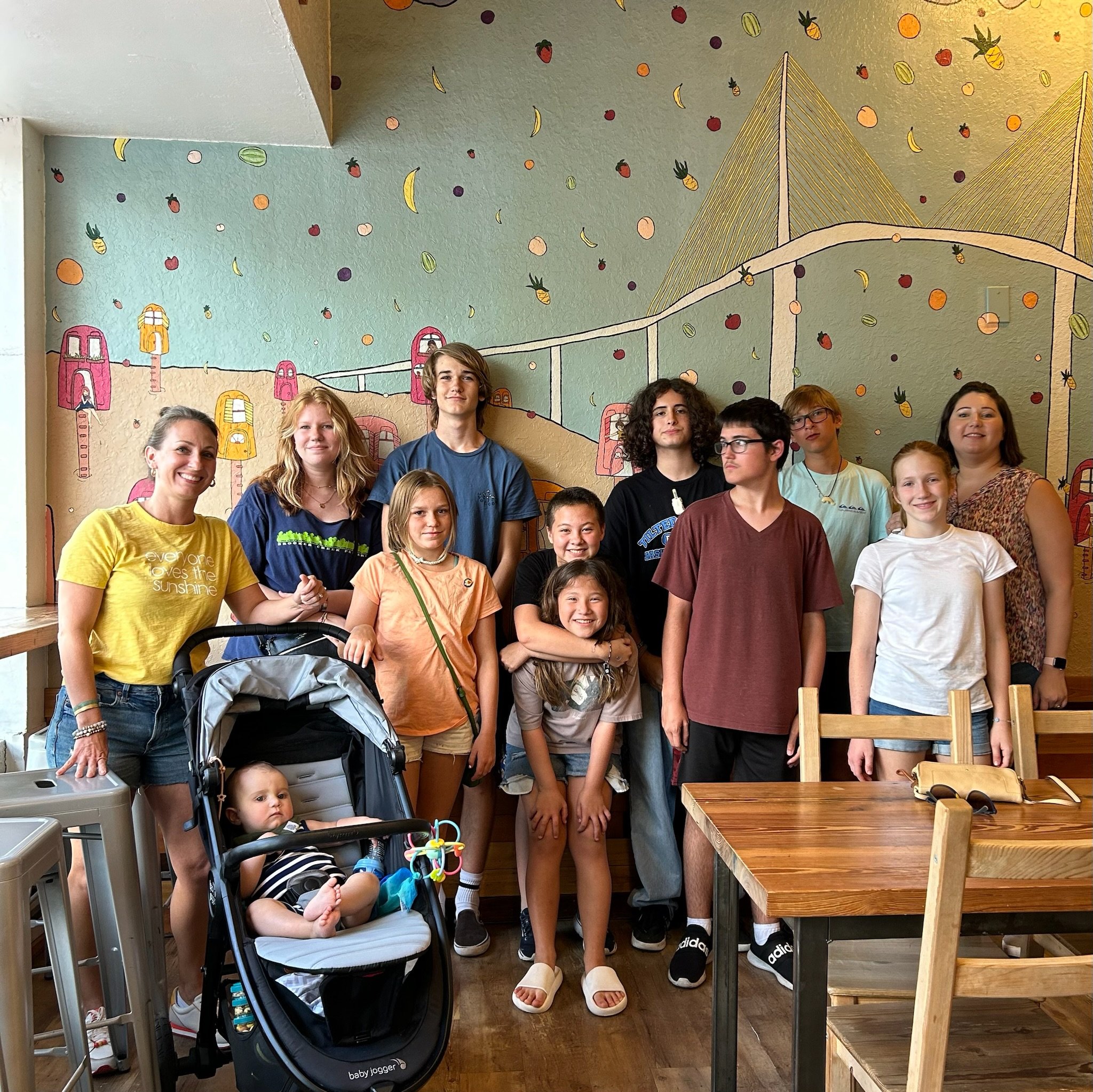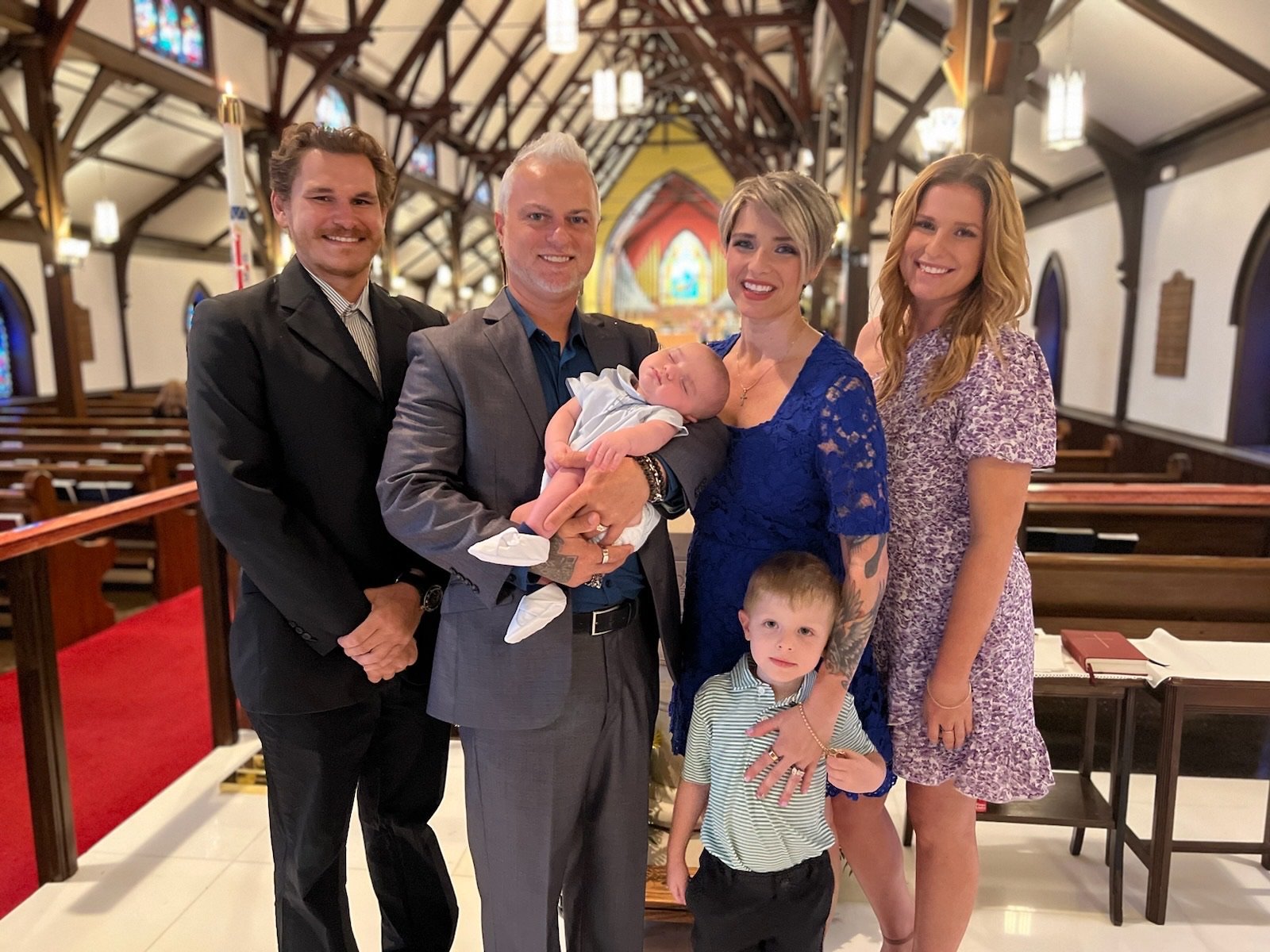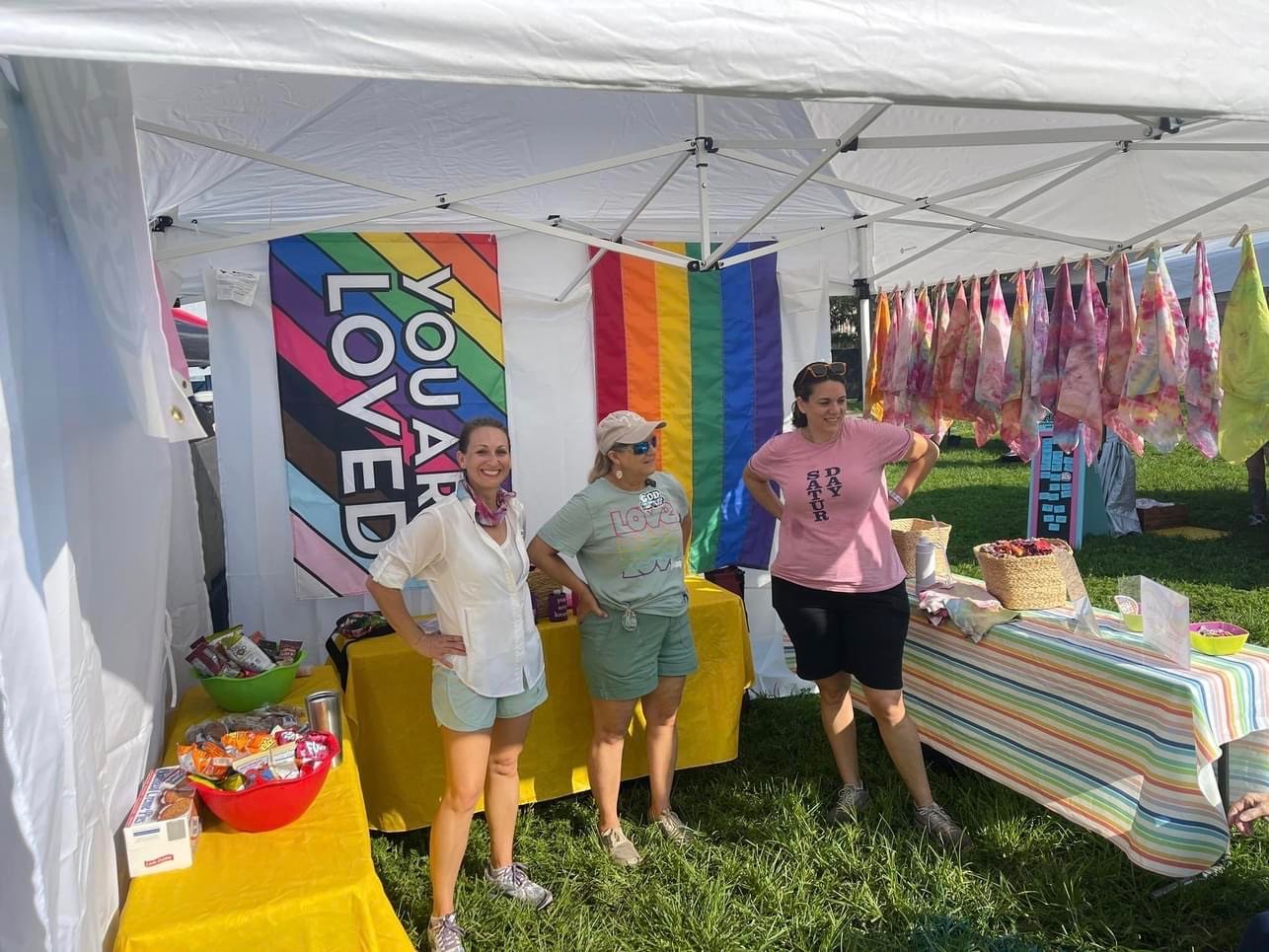The Cathedral Church of St. Peter is an Episcopal church and
the Cathedral for the Diocese of Southwest Florida.
The Episcopal Church strives to live into the loving, liberating and life-giving message of Christ that welcomes and loves each individual as they are. The Episcopal Church prides itself in walking the “via media” or the middle way between Catholicism and Protestantism: we are both sacramental and rooted in the word of God to guide our actions in the world. You’ll find the Episcopal Church attracts people from a variety of backgrounds. Because we believe that prayer shapes our belief and belief shapes our prayer, there is room for great diversity of thought.
We have a legacy of inclusion, aspiring to tell and exemplify God’s love for every human being; women and men serve as bishops, priests, and deacons in our church. Laypeople and clergy cooperate as leaders at all levels of our church. Leadership is a gift from God, and can be expressed by all people in our church, regardless of sexual identity or orientation. For more information about the Episcopal Church, please see the Episcopal Church website to read more about the ministries and life and work of the church.
Diversity, Equity and Inclusion Statement
We seek to be a church that loves as Jesus loves, loves our neighbors as ourselves, welcomes and celebrates all, and respects the dignity of every human being.
We believe that there is profound strength in diversity, and we stand firmly against hatred, bigotry, racism, and discrimination of any kind. We are intentionally committed to striving for justice and peace among all people.
We invite you to worship with us because you are a child of God. Whatever your ethnicity, skin color, abilities, circumstances, gender identity, sexual orientation, or wherever you are on your spiritual journey, we will help each other to build our relationship with God, with one another, and with the earth.
We pray that we will be an example of unconditional loving-kindness as we work toward racial reconciliation and fostering a Beloved Community full of compassionate, loving, liberating, and life-giving relationships.
We ask you to hold us accountable. When we fall short, work with us to be better and to walk in the way of love as Christ loved us.
Prayers for the Nation | November 2024
There was much anxiety, hope, and excitement leading up to the presidential election. Now that the election has been decided, the upcoming change in administration is celebrated by many, but also fills many others with fear and despair.
As our newly consecrated Presiding Bishop Sean Rowe reminds us, "Regardless of our political allegiances, we must remember that God has called us in The Episcopal Church to seek and serve Christ in all persons. No matter the party in power, we are one church, and we will continue to fulfill our baptismal covenant by proclaiming in word and example the Good News of God in Christ, striving for justice and peace among all people, and protecting the dignity of every human being." You can read the Presiding Bishop's full statement here.
However you may feel today and in the coming days, the Cathedral Church of St. Peter desires to be a house of prayer for all people and a place where the love of Christ is made known in downtown St. Petersburg and throughout the world. Whether rejoicing or distressed, there is still work to do, and we will be made better as people and a community if we draw alongside each other.
If you are wondering what comes next, we invite you to participate in the work the Cathedral has been doing before November 5 and will continue long after:
Participate in worship, offering to God all that we are, Sundays at 8:00 am and 10:15 am, Wednesdays at 12:05 pm, and Choral Evensong on fourth Sundays at 5:00 pm
Volunteer to inspire and encourage children at the Great American Teach-In at Campbell Park Elementary School on Wednesday, November 13.
Commit to the new Sacred Ground Circle, the Episcopal Church's commitment to reconciliation and justice, that begins November 23
Sign up to cheer on the Cathedral's Girls on the Run team as a Sparkle Runner to encourage young girls and instill a sense of accomplishment and confidence on Saturday, November 23
Advocate for change in Pinellas County by joining a FAST research committee
Serve dinner to our unhoused neighbors at St. Vincent de Paul CARES once a month on a Wednesday
Join a Bible or book study to deepen your faith and learn from others where they see God in the world
Reach out to a friend, sit next to someone new during Coffee Hour, pray for your neighbors
We invite you to join us as we continue to work for the common good of all God's people. May God continue to bless you and our communal life.
Letter to the Congregation | June 2023
As we celebrate the start of Pride Month, we invite you to remember your baptismal covenant. In our baptismal covenant we promise to seek and serve Christ in all persons, strive for peace and justice, and respect the dignity of every human being. Given legislation passed in our state and across the country, we are offered a time to live into these promises.
Legislation recently adopted by our state lawmakers and signed by the governor is deeply troubling. These laws restrict access to gender-affirming and lifesaving medical care for an already vulnerable community, threaten to erase the existence of the LGBTQ+ community in public education, revoke a parent’s right to ensure that their child’s gender is respected at school, criminalize access to bathrooms and locker rooms, ban transgender women and girls from participating in sports, and restrict drag shows and Pride events. You can read a summary of recent legislation here.
These laws directly target the rights of LGBTQ+ people and many of the basic freedoms we, as Floridians, have previously enjoyed. We stand with those who are targeted by legislation that endangers rather than enhances the lives of our fellow Floridians. To the members of our own Cathedral Church of St. Peter community who have been impacted and harmed, you are not alone.
The Episcopal Church is committed to removing barriers to full inclusion of nonbinary and transgender people in the church and to advocate for legislation that protects against discrimination.
Throughout salvation history we continually see God as the source of liberation, freedom, justice, and dignity – in freeing the Israelites from bondage in Egypt, and in the life and ministry of Jesus. He fed and healed; advocated for the outcasts, the least, and the lost; and taught and preached a way of love that faced down power, even on the Cross, and prevailed. When we act in ways that affirm the existence of others, especially the vulnerable and marginalized, we are both the most Christ-like and the most human.
Transphobia and homophobia have no place in the Church. We choose to use our voices to tell a different story about what Christian love looks like. Here are a few ways you can show your support in our community:
Participate in and support Family Pride Day on Saturday, June 10 to affirm that we are a safe, welcoming, diverse, and supportive worshipping community
Let your legislators know your feelings about these laws, and support candidates whose views align with yours
Let your LGBTQ+ friends and family know that they have your support
Speak up when you hear anti-gay language
Provide the children in your life with books that present a wide range of characters and families -- races, genders, ethnicities, family makeup -- in which they can see themselves and their friends. Our local independent bookstore Tombolo will be glad to help!
Remember Jesus's command to love your neighbor -- the neighbor who doesn't look like you, think like you, love like you, speak like you, pray like you, or vote like you
We trust that, with God’s help, we will prayerfully pursue ceaseless efforts for justice. We trust the movement of God in the midst of fear and anxiety and that together we might reflect God’s deepest desire of liberation for all people.
Peace,
The Cathedral Church of St. Peter Clergy and Staff
Since 1894, the Cathedral Church of St Peter has been at the corner of Fourth Street and Second Avenue N.
During that time, our buildings have expanded and changed, but our mission has remained the same: to bring the love of Christ to St. Petersburg and to be a place where people are drawn together by faith in God’s love.
The mission church that became St. Peter’s was established in 1889 a few blocks west of here. In 1894, the small wooden chapel that housed the mission as moved to this site, at Fourth Street and Second Avenue N. In 1889, a new sanctuary was completed and consecrated on this site. It was quite a bit smaller than what you see today. In 1926, the church was expanded to its present size, and the space that later became St. Mary’s Chapel was added on the south side of the sanctuary.
The end of World War I in 1918 heralded the start of the "boom years" in St. Petersburg as a war-weary nation headed South for warm weather and recreation and the legendary wild property speculation that characterized the Roaring '20s.
By 1922, so many people were attending the Easter service at St. Peter's that the regular members couldn't get seats. But by 1931 the full effects of the Great Depression were taking hold: The church had to borrow money to meet expenses and the rector took a salary cut. In the city, bank deposits plummeted (four banks closed), building permits dried up and population growth dwindled.
Happier days returned by 1936. Vestry minutes record a discussion of the need for more ushers to alleviate the "immense crowds" at Communion, and 100 new Prayer Books were ordered. By the end of the decade a new Parish House had been completed (it was demolished in 2007), St. Peter's was out of debt, and the city had regained its reputation as a popular tourist destination.
That would change abruptly after Pearl Harbor, when the grand hotels in Pinellas County were turned into barracks to house troops being trained here. St. Peter's welcomed the troops to worship services, contributed to war relief, opened its doors to the Red Cross and created a "Writing and Recreation" room where as many as 500 letters were written each week by members of the military.
When the war ended, St. Petersburg experienced a third boom era. Tourists returned, and soldiers and sailors who had trained here returned to settle down, get jobs, and start families. By 1947 the Sunday school superintendent was complaining about the lack of space to accommodate children. The first conversations began about starting a church-sponsored primary school, which eventually became the Canterbury School. From the 1960s through the '80s, St. Peter's saw a period of great growth with full pews and a packed Sunday school, magnificent adult and children's choirs, a busy youth program and active social clubs.
By 1969, population growth had made the huge Episcopal Diocese of South Florida -- effectively everything from I-4 south to the Keys -- too large for one bishop. It was divided into three dioceses -- Southeast Florida, Central Florida and Southwest Florida.
St. Peter’s Episcopal Church became The Cathedral Church of St. Peter in 1969. The Episcopal Church in the United States is divided into geographic areas known as dioceses and each dioceses has a Cathedral church. We are in the Diocese of Southwest Florida, which extends from Brooksville (Hernando County) to Marco Island (Lee County), and from the Gulf of Mexico to Plant City (Hillsborough County). There are about 36,000 Episcopalians in 78 congregations in this dioceses. Each diocese is presided over by a Bishop; ours is the Right Rev. Dabney T. Smith, and the Cathedral is the bishop’s official church residence. St. Peter’s takes seriously its role as the Cathedral. We host ordinations; the annual Acolyte Festival, the largest youth event in the diocese; and the diocesan celebration of Blessed Absalom Jones in February. We gladly share our resources, space and knowledge with other congregations in the wider community.
In recent years St. Peter's has established itself as a resource for the diocese, hosting the annual Acolyte Festival and diocesan ordinations. We have been recognized as a Jubilee Center for the ministries we have incubated here, including Resurrection House, a faith-based program that provides housing and life skills for single mothers with children. When the Episcopal Church approved same-sex blessings in 2012, the Cathedral conducted a series of conversations that offered a model to the rest of the diocese for how to engage a sensitive subject with respect and love.
We continue our tradition of excellence in liturgy, arts and music, attracting worshipers and concertgoers from all across Tampa Bay. The Cathedral currently has about 800 active, baptized members, and our average attendance at our three weekend services is around 350. Our major outreach efforts include Project 33701, in which we strive to connect with, welcome and serve our neighbors. From time to time we engage the wider community in conversations on compelling topics: racism, respect, the role of Christianity in the public square. And once again we are seeing a period of growth: young families with children, millennials, older singles and couples, all seeking to connect with Jesus in a place where they know they belong.




